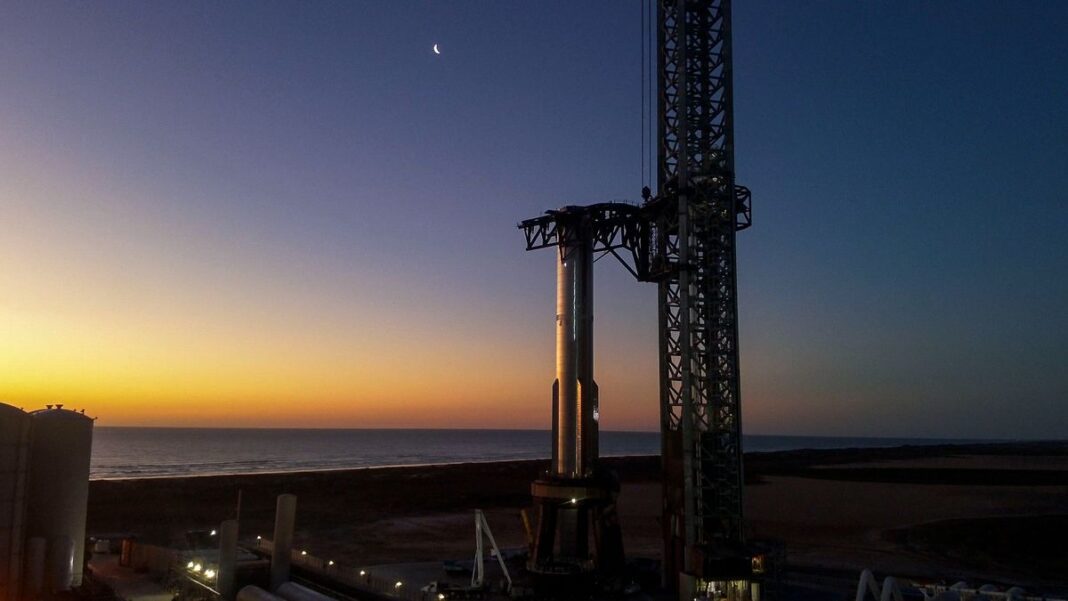SpaceX is continuing to gear up for the next test flight of its Starship megarocket.
On Thursday (April 4), SpaceX announced via X that it has moved a Starship first stage, a 33-engine booster called Super Heavy, to the launch pad at its Starbase site in South Texas.
That post also shared two photos of the giant, stainless-steel booster clutched by the “chopstick” arms of the tower at Starbase’s orbital launch mount.
Related: Relive SpaceX Starship’s 3rd flight test in breathtaking photos
Super Heavy is presumably being positioned for a static fire, a prelaunch test in which the booster’s 33 Raptor engines will burn for a few seconds while the vehicle remains anchored to the pad.
SpaceX has already performed static fires with the booster’s partner — a 165-foot-tall (50-meter-tall) upper-stage spacecraft that will fly with this Super Heavy on the fourth Starship test flight.
That mission could launch as soon as as soon as early May, SpaceX President and Chief Operating Officer Gwynne Shotwell said last month.
SpaceX is developing Starship — a fully reusable vehicle that’s the biggest and most powerful rocket ever built — to get people and cargo to the moon, Mars and beyond.
Starship has launched three times to date: in April 2023, November 2023 and March 14 of this year. The megarocket has performed better on each successive flight, though none were fully successful.
Starship’s two stages failed to separate as planned on its debut mission, and SpaceX detonated the vehicle intentionally after just four minutes. The November flight saw a good stage separation, but that mission ended eight minutes after liftoff.
The March 14 flight, however, lasted nearly 50 minutes. Starship’s upper stage notched a number of milestones during that time, including opening its payload doors in space, before finally breaking apart while reentering Earth’s atmosphere.


